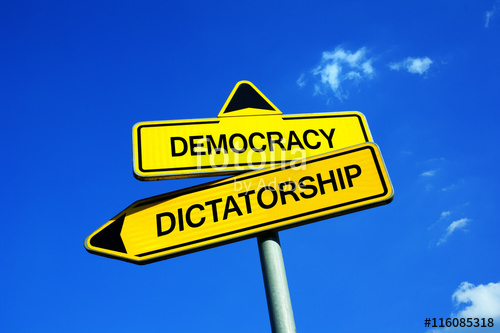‘Trumpian-ness reminds us of just how vulgar democracy is, unless moderated by conventions’

Harvey Mansfield, who is both politically conservative and philosophically liberal, recently offered one of the best explanations of the ‘who’, ‘what’ and ‘why’ of Donald Trump.
In a conversation with Yascha Mounk of Persuasion, Professor Mansfield – addressed the effects and the meaning of Trumpian behaviour and the man himself. It’s worth a listen — click here – but if not, some of the highlights are below.
Professor Mansfield, the William R. Kenan, Jr. Professor of Government at Harvard University (this year, he marks 60 years of teaching at Harvard) is very clear about the anomaly that is Mr Trump. He should not be considered in the usual mould of politicians in America, he says, whether on the right or the left. For, he is “a special case…a demagogue…a man with a desire to be loved,” says Professor Mansfield. “The classic definition of a demagogue is a person who wants to be loved. And he doesn’t care by whom: as long as you love him, he loves you back. If you don’t, then he doesn’t like you, or even hates you. And so this is sort of politically neutral.”
He makes a key point – there is nothing ideological about Mr Trump or the political positions he assumes. He would’ve been perfectly happy rising to prominence on either side of the political spectrum: “He just saw the opportunity to hijack the Republican Party, but it could have been the Democratic Party. So, attributing to him a set of beliefs is finding permanence in something that’s pretty contingent.”
He goes on to note that Mr Trump is “a vulgar man”, someone who “reminds us of just how vulgar democracy is.” In a way, Mr Trump is “more democratic than we are. He’s more authoritarian, which means sort of arbitrary or whimsical, changes his view and insists on it. He’s more authoritarian, but that’s just what democracy is, when it isn’t made moderate and deliberate by constitutions.”
Or leavened by a deliberate choice – say, by the wisdom of party grandees.
“If we chose our candidates for president in conventions and smoke-filled rooms, as we used to, they wouldn’t have come up with Donald Trump,” says Professor Mansfield. “He’s a kind of consequence, if you want to say, of the increasing democratization of our country”.
And there you have it. Too much democratisation, without controls, can weaken democracy. This is, as I’ve written before, something Plato’s Socrates explained really brilliantly in Book VIII of the Republic:
“…the four governments of which I spoke, so far as they have distinct names, are, first, those of Crete and Sparta, which are generally applauded; what is termed oligarchy comes next; this is not equally approved, and is a form of government which teems with evils: thirdly, democracy, which naturally follows oligarchy, although very different: and lastly comes tyranny, great and famous, which differs from them all, and is the fourth and worst disorder of a State.”
Socrates’ discussion continues as follows:
“Say then, my friend, in what manner does tyranny arise? –that it has a democratic origin is evident.
Clearly.
And does not tyranny spring from democracy in the same manner as democracy from oligarchy –I mean, after a sort?”
Socrates notes that “the insatiable desire [for freedom] of this and the neglect of other things introduces the change in democracy, which occasions a demand for tyranny.”
This because: “When a democracy which is thirsting for freedom has evil cupbearers presiding over the feast, and has drunk too deeply of the strong wine of freedom, then, unless her rulers are very amenable and give a plentiful draught, she calls them to account and punishes them, and says that they are cursed oligarchs.”

